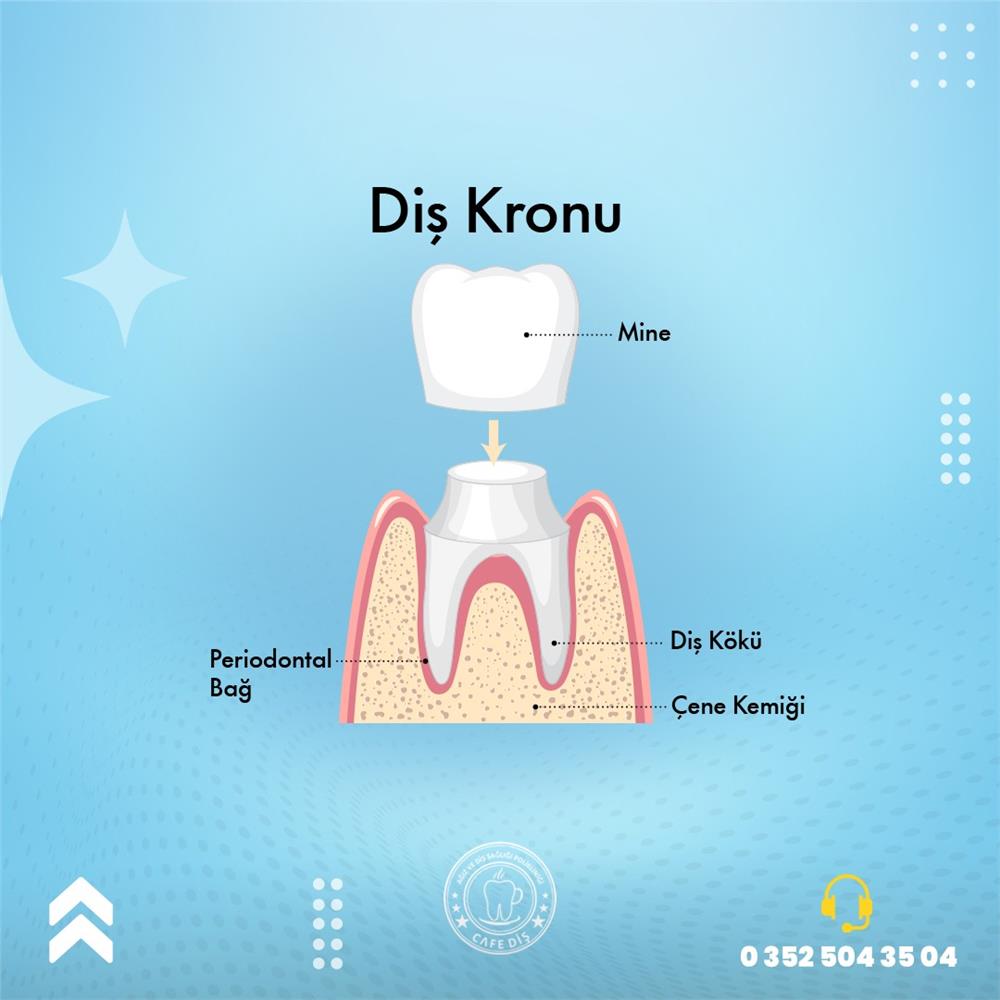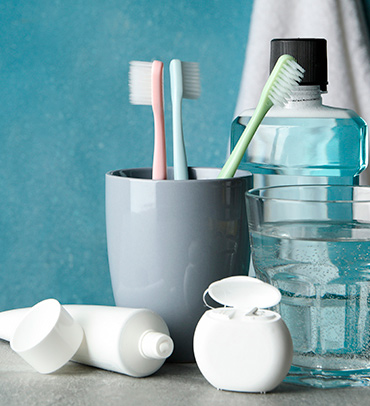A dental crown is a tooth-shaped cap that is used to repair a decayed, broken, weakened or worn tooth.
Poorly maintained teeth are always potential sources of problems. In addressing these issues, dental crowns serve as an important solution, especially when used for decayed, broken, weakened, or worn-down teeth.
A dental crown is a tooth-shaped cap that is used to repair a damaged tooth. Dentists commonly use crowns to cover teeth that have undergone dental implants or root canal treatments.
Crowns can be made from various materials including metal, resin, and porcelain, with a lifespan ranging from 5 to 15 years depending on careful maintenance.
A dental crown used for therapeutic purposes can be made from a variety of materials and placed over a damaged tooth to restore its function.

What is Dental Crown?
A dental crown, also known as a dental cap, is a covering placed over a tooth to restore its shape and size, strength, and improve its appearance. Dentists often prefer using crowns to treat weakened, fractured, or decayed teeth, providing protection and enhancing their structural integrity.
A dental crown fits snugly over the entire tooth, similar to a cap or hat. To ensure a proper fit, the dentist typically removes a small amount of enamel before cementing the new crown into place.
Dental technicians prepare crowns using various materials such as resin, metal, and porcelain, tailored to meet specific dental needs.
When is a Dental Crown Needed?
Dental crowns serve various purposes depending on the condition of the teeth they are used on:
- Strengthening a weakened tooth.
- Protecting and supporting a cracked tooth.
- Repairing a worn-down or broken tooth.
- Holding a dental bridge in place.
- Covering severely discolored or misshapen teeth.
- Covering a tooth that has undergone root canal treatment.
- Concealing a dental implant.
Types of Dental Crowns
There are several types of dental crowns available, each suited to different needs and preferences:
1-Metal Crowns
- Made from alloys such as gold, palladium, nickel, or chromium.
- Very durable and rarely chip or break.
- Best suited for molars due to their metallic color.
2-Porcelain-Fused-to-Metal (PFM) Crowns
- Combine the strength of metal with the aesthetics of porcelain.
- Can wear down over time, revealing the underlying metal.
- Can cause minimal wear on opposing teeth.
3-All-Ceramic or All-Porcelain Crowns
- Provide the most natural appearance, mimicking natural tooth enamel.
- Ideal for front teeth and those allergic to metals.
- More prone to wear compared to metal-based crowns.
4-Pressed Ceramic Crowns
- Made from a single block of ceramic, providing a translucent appearance.
- Durable but can wear opposing teeth over time.
5-Same-Day Crowns (CAD/CAM Technology)
- Created using computer-aided design and manufacturing.
- Designed and milled in the dental office within a single visit.
- Offer convenience but may not be suitable for everyone.
6-Resin Crowns
- Less expensive but more prone to fracture compared to other types.
- Often used as temporary crowns before permanent ones are placed.
How are Dental Crowns Placed?
The process of placing a dental crown generally involves two visits to the dentist:
1-Preparation
- The dentist prepares the tooth by removing a portion of its natural enamel.
- Impressions of the tooth are taken, either digitally or with a putty-like material.
2-Temporary Crown
- A temporary crown is placed while the permanent crown is being fabricated in a dental laboratory.
3-Placement
- Once ready, the permanent crown is cemented onto the prepared tooth.
- The fit, color, and bite are checked before final cementation.
Benefits of Dental Crowns
- Extend the life of a natural tooth.
- Protect against further decay or damage.
- Improve chewing function.
- Enhance the appearance of teeth.
- Can last between 5 to 15 years with proper care.
Considerations and Aftercare
- Some enamel removal is necessary.
- Initial sensitivity may occur but usually subsides.
- Regular dental check-ups and proper oral hygiene are essential.
Potential Drawbacks
- Initial cost can be high.
- May require replacement if damaged.
- Improper fitting can lead to decay.
In summary, dental crowns are versatile restorations that can strengthen, protect, and enhance the appearance of teeth, tailored to individual dental needs and preferences.

